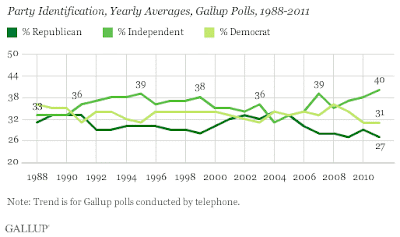Brisbane, apparently, was stunned that readers were stunned he had even needed to ask if reporters should be nit-picky in checking their facts and the veracity of those they quote. And he obviously thinks readers are just as stupid as they were a year ago when he wrote his "Thundering Herd" column* (a/k/a "Readers With Plenty to Say") Here is what he huffily emailed to media critic Jim Romanesko today:
I have to say I did not expect that so many people would interpret me to have asked only: should The Times print the truth and fact-check? Of course, The Times should print the truth, when it can be found, and fact-check. What I was trying to ask was whether reporters should always rebut dubious facts in the bodies of the stories they are writing. I was hoping for diverse and even nuanced responses to what I think is a difficult question....I often get well-reasoned complaints and questions from readers, but in this case a lot of people responded to a question I was not asking.Take that, thundering herd! Artie gives you a D for conduct and effort, despite the fact that the Gray Lady has seen fit to reduce the length of reader responses to a paltry 1500 characters (three or four very short paragraphs), so nuance is kind of hard. Nuance is also totally unnecessary and inappropriate when responding to drivel. A quick eff you would have sufficed. Speaking of effort, a typical Arthur Brisbane Sunday column consists of cut and pasted letters from the readership. That's it. He slaps up the missives and does not even deign to respond. He usually receives but a handful of reader comments, so today's deluge might have had him sputtering.
Brisbane does have at least one semi-defender in the person of Esquire scribe Charles P. Pierce, who writes that reporters in this digital age are up against constant deadlines, cutthroat competition, and editors who often side with the lying liars. The bottom line trumps truth and accuracy:
Most newspapers -- most especially, the New York Times -- have forced upon their reporters what are called "ethics codes," but which, in reality, are speech codes written to prevent the beancounters and careerists from having to answer angry phone calls from wingnuts. I am not kidding -- under some of these abominations, a reporter literally can be disciplined for spouting off about, say, Willard Romney in a bar, if someone heard the reporter, and called the beancounter to complain. The campaign buses are filled now with young reporters who know full well that, given sufficient pressure from either inside or outside "the company," their bosses do not have their backs.There is some truth(iness) in this. When I was working as a cub reporter at the dawn of time, when they still had manual typewriters, I got into big trouble once for being a bit too obsessed with veracity. I had the poor taste to write an article on a something I'd come across in the police blotter that morning: the son of a mayoral candidate running on a law and order platform was arrested on vandalism and burglary charges. Somehow my scoop slipped past the editor's mangle and got into print. The candidate stormed in, livid. I got a dressing-down from my boss for having done a nasty bitchy thing by not keeping a private family matter on the QT. In the end, it didn't matter: she won the election.
So, yeah... I can imagine Pinch Sulzberger's phone ringing off the hook because one of the bitchy reporters hurt Mitt Romney's feelings by calling him out on a fib or hundred. It's all about access, not alienating the advertisers and the rich and powerful -- and nuance. Journalists are as expendable as the wrapping for last night's fish.
Which is why I am perfectly happy to be a poor blogger in my dotage. People can complain all they want (and they do). But nobody can fire me.



